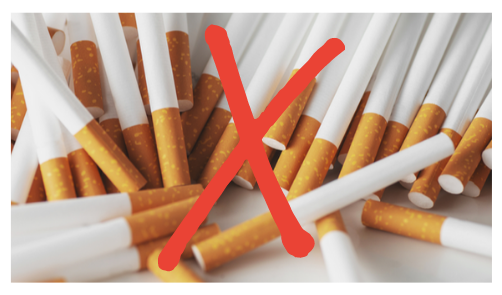Smoking and Bariatric Surgery – There are a number of complications associated with smoking and weight loss surgery
24th July 2021
Posted in: Latest News
There are a number of complications associated with smoking and weight loss surgery.
Dr George Balalis sees a lot of patients for consideration of weight loss surgery, including sleeve gastrectomy and gastric bypass. These operations have a low complication rate, and are proven treatments for obesity, however in patients that smoke these risks increase significantly. Dr Balalis will not perform sleeve gastrectomy or gastric bypass operations on patients that are currently smoking.
Aside from the standard health risks that smoking causes, active and historical tobacco use has been shown to increase your risk of experiencing the following surgical complications.
Higher risk of infections
Smokers naturally have decreased wound healing. Wound healing is imperative post weight loss surgery to prevent leaks.
Tobacco in smokers causes the blood vessels to shrink, which decreases blood flow to the new stomach created during weight loss surgery. Carbon monoxide reduces the ability of the red blood cells to carry oxygen throughout the body. Both of these factors cause a much slower healing process after a weight loss procedure, including sleeve gastrectomy and gastric bypass surgery.
Stomach Ulcers
Stomach ulcers can be difficult to manage, particularly following gastric bypass surgery. The rates of ulcers are far higher in patients that smoke, and that includes at any stage after the operation. These ulcers can lead to further complications including bleeding and perforations, which may mean a further operation. Again these complications are far higher in patients that smoke.
Blood clots
Blood clots, including DVT (deep vein thrombosis) and PE (pulmonary embolus) can occur after surgery, but are rare if patients have efficient and safe surgery, are mobilised early and have the correct prophylaxis adopted. This rate increases significantly in patients who smoke.
Pulmonary complications
When you smoke, the amounts of carbon monoxide and nicotine in your blood increase, which reduces the amount of oxygen available to reach the tissues throughout your body. Oxygen is essential to help wounds heal, and further to this nicotine makes the heart work harder, partly because it increases blood pressure and pulse rate. Anaesthesia and surgery also place a greater strain on circulation and oxygen supply, and this is made worse by patients who smoke.
Recommendations
Quitting smoking even only a short time before surgery could increase the amount of oxygen available in the body. Nicotine and the extra carbon monoxide from smoking start to disappear from the blood after 24 hours without cigarettes. Lung function starts to improve after about 2 months of quitting. Complication rates drop significantly when nicotine is not present, and therefore Dr Balalis requires patients to be nicotine free for at least 6 weeks prior to surgery. This includes no vaping, no patches or other cigarette aids or alternatives.
Weight loss surgery is a journey, where a number of lifestyle and routine modifications are important for a good outcome. Numerous members of our weight loss surgery team can assist patients to quit smoking prior to surgery.
If you are considering weight loss surgery, plan ahead and quit smoking – our team can assist with this.
For more information, do not hesitate to contact Dr Balalis.
